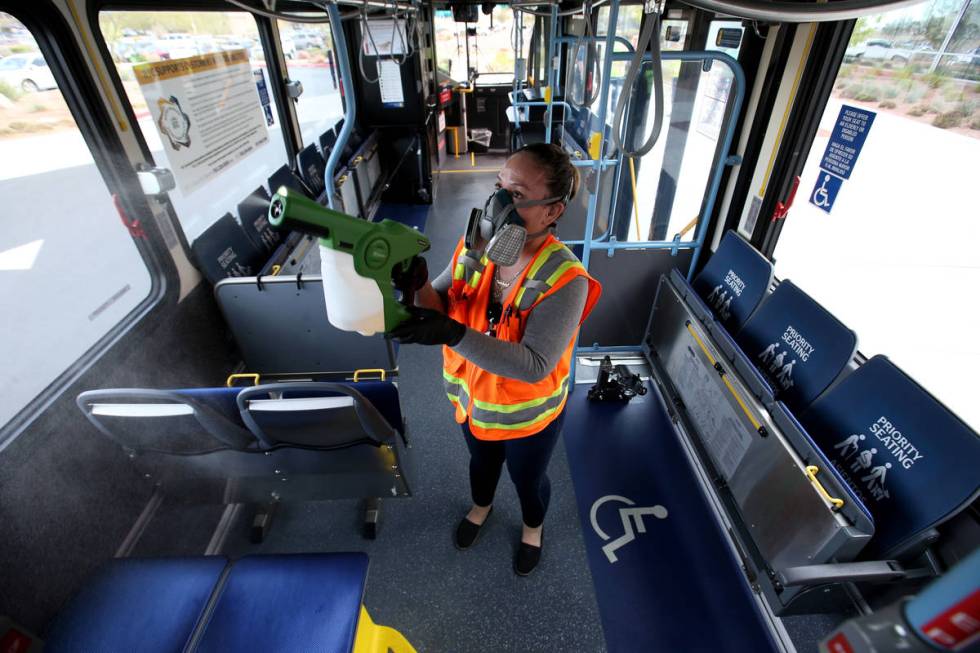Union urges transit agencies to do more to keep workers, public safe

The largest labor organization representing transit workers in North America is calling on transportation agencies to increase protections for operators on the front line of the COVID-19 epidemic.
The Amalgamated Transit Union is calling for tighter safety restrictions as it has reports of bus operators, van drivers, cleaners and mechanics being potentially exposed to the novel coronavirus during the course of their daily work.
“Many of our members have already been exposed to this virus, have family members exposed and child care issues like countless families, but are not being given the pandemic leave needed to be safe or the protections needed to prevent transmission in the first place,” said John Costa, president of the ATU.
“Yet our members — bus drivers, rail operators and the mechanics and other transit workers maintaining and disinfecting vehicles — are being unnecessarily exposed to coronavirus due to negligence and disregard by many contractors and transit agencies across North America.”
The Regional Transportation Commission of Southern Nevada said it is committed to continuing to offer public transportation during this critical time, keeping the health and safety of their customers, contractors and staff at the forefront.
“While public transportation was identified as an essential service, the RTC and our contractors have implemented several measures to protect workers and the riding public,” said Francis Julien, deputy CEO.
Buses operated on the RTC’s system are cleaned and disinfected nightly, but ATU Local 1637 President John Foster said members would prefer that the cleaning occurred between each driver’s shift.
An employee of MV Transportation, one of two contractors who operate buses from the RTC, tested positive for the novel coronavirus, resulting in 38 other employees being sent home for self-quarantine, according to Jeff Womack, MV Transportation spokesman.
RTC had to expedite the start of a planned Sunday schedule seven days a week because of an influx of driver call-offs, which Foster said are mainly from coronavirus fears.
In response, the ATU is calling for changes to keep systems running and workers safe.
“It’s time for transit agencies to provide us the protections we need to work safely and for the right to keep ourselves, our families, our riders and our communities safe while continuing to provide the essential transit service needed to fight this crisis,” Costa said.
Here are the ATU’s requested changes and responses from RTC (Julien) and its two contractors, MV Transportation (Womack) and Keolis (Marc Perla, general manager — Las Vegas Operations).
■ Increased health and safety measures needed for transit workers and the riding public, including gloves, masks, sanitizers, and all personal protective equipment.
RTC: With RTC’s existing cleaning and maintenance protocols, the transit agency is using enhanced disinfecting procedures as recommended by the Centers for Disease Control and Prevention and the Southern Nevada Health District. The crews apply a disinfectant solution on every public transit vehicle each night. The hospital-grade solution kills 99 percent of germs and viruses and is being applied with electrostatic dispensers that administer disinfectant on all services on the interior of the vehicle.
While operators are employed by private contractors, they are provided with gloves, hand sanitizer and driver safety enclosures to maintain distance.
MV Transportation: RTC bus operators are provided as many gloves as they need and 8-ounce bottles of hand sanitizer.
MV allows drivers to wear masks while driving but doesn’t supply them because of scarcity and because the CDC has indicated they are not useful unless you’re sick.
Keolis: Gloves, antibacterial soap and hospital-grade Clorox wipes were provided to all employees. We clean the buses at least once per day, and more frequently if warranted, and all other Keolis vehicles are cleaned on a daily basis.
■ Provide pandemic leave for anyone showing symptoms of COVID-19, exposed to it, or with family or childcare obligations resulting from shutdowns.
RTC: As drivers are employed by private contractors, RTC deferred to MV Transportation and Keolis.
MV Transportation: We do not discuss employee benefits publicly, but we can confirm that MV provides paid time off and sick leave in accordance with the collective bargaining agreement and applicable law.
Keolis: Per its collective bargaining agreement with the ATU, Keolis provides paid time off (PTO), which can be used for sick leave and personal time off, and now will also include requests for pandemic leave.
■ Allow rear door entry and eliminate fares to support social distancing.
RTC: RTC’s public transit vehicles are equipped with driver safety doors and windows. Drivers are strongly encouraged to keep them closed. RTC continues to collect fares, but drivers are instructed not to touch the fare box or handle any money.
■ Retain employees and maintain wages and benefits during service curtailment.
RTC: RTC deferred to MV Transportation and Keolis.
MV Transportation: Didn’t provide comment.
Keolis: With the RTC implementing a Sunday schedule for the foreseeable future, this means that operators with Keolis Transit will be providing daily service with fewer runs per hour for all routes, including the Las Vegas Strip and residential commuter routes. Keolis will work with the RTC and the passage of the CARES Act by Congress to minimize the impact to the workforce.
“The safety of our employees and the riding public is always our primary concern,” Perla said. “All our actions prioritize what matters most to us: the safety and well-being of our community.”
^
Contact Mick Akers at makers@reviewjournal.com or 702-387-2920. Follow @mickakers on Twitter